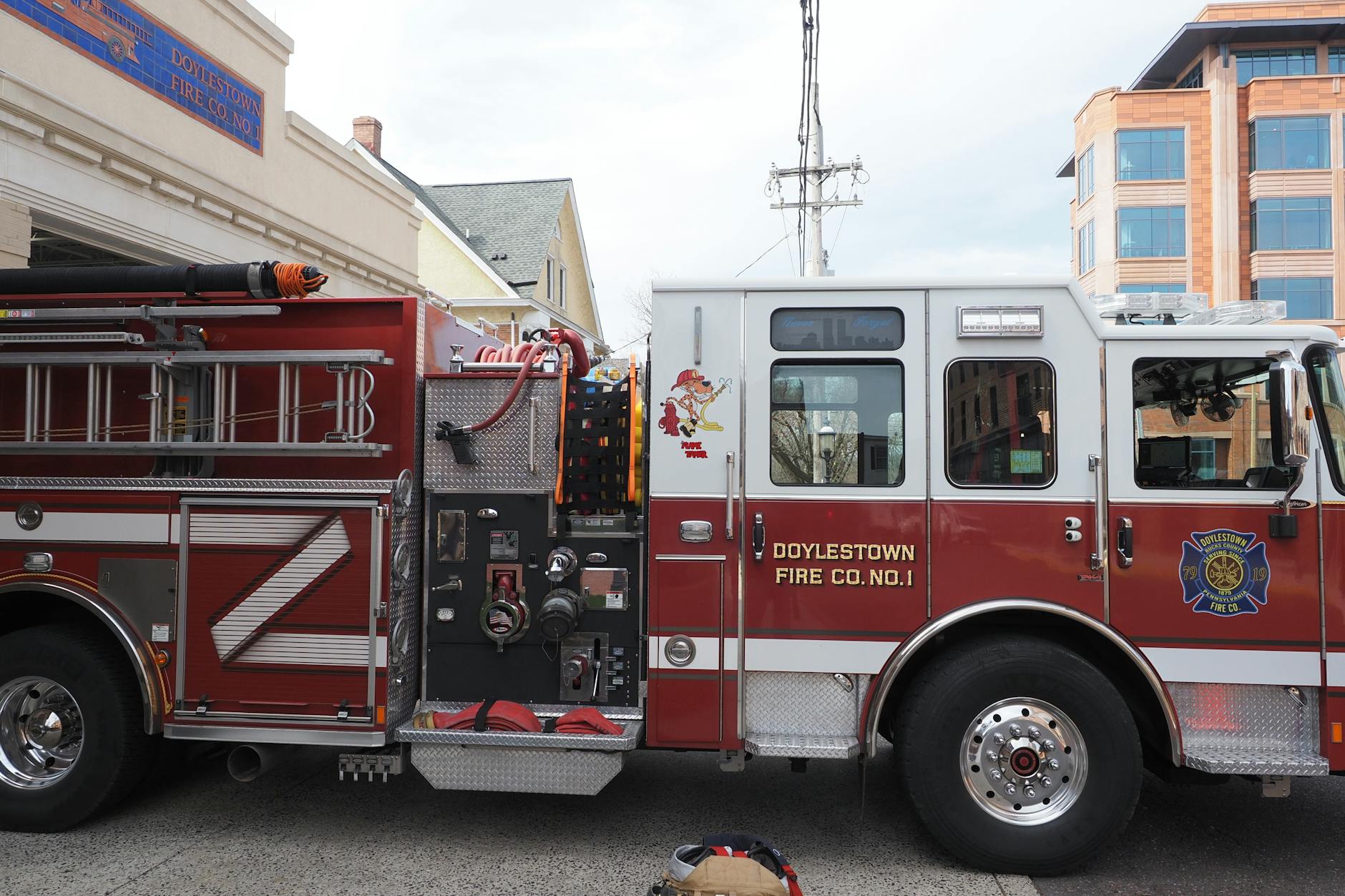How to Navigate Police Checks Across Australia for Logistics Professionals

Overview of Police Checks
As a supply chain professional in Melbourne, understanding the intricacies of police clearance is vital for maintaining compliance within the logistics realm. Whether you're coordinating shipments through the bustling Port of Melbourne or managing operations at key logistics hubs in Fishermans Bend, one cannot underestimate the importance of a well-executed compliance protocol.
Types of Police Checks
Police checks come in various forms, each serving specific purposes. For sectors like logistics, where safeguarding cargo and personnel is a priority, understanding these distinctions is crucial. General checks may suffice for some roles, while more extensive police check Victoria might be necessary for others, especially those in high-security environments or roles requiring significant trust.
National vs. State Checks
In Australia, navigating the complexities between national and state-specific checks can be challenging, particularly in the dynamic logistic chains that span across different regions. National checks provide a broad overview but might miss state-specific concerns. For instance, a police check Tasmania offers unique insight pertinent only within Tasmania's borders. Thus, a holistic approach that combines both levels ensures seamless operations.
Key Compliance Requirements
Ensuring compliance with police check regulations is an ongoing task. Awareness of key requirements such as timely renewals and understanding the differences between jurisdictions can significantly reduce the risk of non-compliance. Incorporating these checks as routine parts of hiring or partnering with contractors can contribute to the smooth running of operations, minimizing the risk of disruptions due to oversight.
By equipping teams with this knowledge, logistics professionals can maintain operational integrity while leveraging compliance as a strategic advantage in their overall workflow.
Understanding State Variations
Differences in Process by State
Navigating police checks across different Australian states can be akin to steering a ship through the complex channels near the Port of Melbourne. Each state adheres to unique processes, making it essential to understand the distinctions to maintain compliance. In New South Wales (NSW), for example, a national police check NSW involves a comprehensive examination that can intersect with national databases, differing from the procedures in Victoria or Queensland.
Unique Requirements and Exceptions
State-specific nuances add an extra layer of complexity. Some regions might require additional documentation or specific forms, which aren't needed elsewhere. An Australian police check in Victoria may demand a detailed declaration of previous addresses, whereas NSW might focus more heavily on supporting identification documents. Understanding these unique requirements is crucial to avoid compliance issues and ensure smooth logistics operations.
Tips for Multi-State Operations
When managing operations across states, employing a consistent yet adaptable strategy can enhance efficiency. Here’s how to stay ahead:
-
Centralise Information: Create a resource hub for state-specific compliance guidelines that is easily accessible to your team.
-
Regular Training: Keep your staff updated with compliance training sessions focusing on state variations. This ensures they remain informed and agile in navigating requirements.
-
Utilise Technology: Implement digital platforms that streamline the compilation and tracking of criminal background check requirements unique to each state.
Understanding and adapting to these state variations not only aids in compliance but also optimises your logistics operations, reducing potential bottlenecks.
Implementing Efficient Systems
Streamlining the Verification Process
As someone immersed in the logistics and supply chain sector, it's crucial for us to smooth out the verification steps, such as acquiring a national criminal history check. This ensures our operations at places like the Port of Melbourne are efficient and compliant. By focusing on refining these procedures, we reduce time spent and mitigate potential errors, leading to seamless background verifications which are vital to sustaining the integrity of our daily operations.
Leveraging Technology for Compliance
Technology can be a game-changer in maintaining compliance with complex regulations. By integrating advanced digital platforms into our processes, we can expedite tasks like securing a police clearance NSW. These tools offer not only speed but also accuracy, enabling facilities at Fishermans Bend and Tullamarine to stay ahead in a competitive industry. It's about embracing systems that mine data and deliver precise results, fitting seamlessly into our existing workflow.
Training Staff for Efficiency
Training is at the core of adhering to compliance requirements. When staff are well-trained in the latest compliance technology and understand the importance of various police checks, our logistics hubs become more efficient. Tailoring sessions that focus on the latest updates and practical applications ensures our team is equipped to handle any regulatory demands. For places like the bustling Port of Melbourne, such mastery in compliance creates an empowered workforce prepared to manage any logistical challenge with competence.
Ensuring Legal and Safety Standards
Common Compliance Pitfalls
For those working in logistics, compliance is a cornerstone to maintaining operational fluidity. When it comes to verifying backgrounds, the digital convenience of a police check online is invaluable, but it’s essential to understand the potential pitfalls. A common error is neglecting to cross-check state-specific requirements, particularly those concerning contractors from different regions like South Australia, which might necessitate a police clearance SA. This oversight can lead to delays or more serious compliance violations.
Legal Repercussions of Non-Compliance
Failing to adhere to compliance regulations can have grave legal implications. Non-compliance isn't just a paperwork issue; it can result in hefty fines and a tarnished reputation, which could disrupt operations at key logistics hubs like those in Fishermans Bend. Companies need to ensure their practices align with both federal and state requirements, especially when managing shipments through critical infrastructure like the Port of Melbourne.
Strategies for Error Prevention
Preventing compliance errors involves rigorous adherence and updating protocols. Here are some proven strategies:
-
Regular Training: Keep your staff updated with the latest compliance regulations. Regular training sessions can significantly reduce data collection and verification errors.
-
Technology Integration: Leverage advanced software for automatic updates on regulatory changes. This proactive approach will help ensure compliance in real time.
-
Audit Trails: Maintain thorough audit trails. These not only assist in tracking compliance status but also serve as a safeguard against legal threats.
Maintaining compliance integrity isn't just about avoiding penalties—it's about ensuring safe and efficient operations within the logistics framework.
Key Takeaways and Best Practices
Ensuring Compliance with State Regulations
Navigating the complexities of police checks for logistics professionals requires a precise understanding of state regulations across Australia. As we operate from logistics hubs in Fishermans Bend and utilise facilities like those in Tullamarine, it's crucial to maintain up-to-date knowledge of regional requirements. Regularly reviewing state-specific updates helps us anticipate changes and adapt our procedures accordingly. This proactive approach can mitigate compliance risks and maintain the integrity of our operations.
Leveraging Technology Effectively
Integrating technological solutions into our processes, such as automated systems for managing work with police checks, can optimise efficiency and compliance. By aligning technology with our compliance framework, we can ensure real-time updates and seamless information flow. This, in turn, reduces manual errors and enhances accuracy, particularly when overseeing operations that span multiple states. Given our strategic positioning near the Port of Melbourne, investing in robust systems offers a competitive edge in managing logistical demands effectively.
Continuous Staff Training and Awareness
Empowering our teams with ongoing training and education is essential. Regular compliance training sessions tailored to our specific needs not only heighten awareness but also foster an environment of responsibility and meticulous attention to detail. Employees should have a clear understanding of the consequences of security police compulsory check officer acting. It's essential that our staff are well-versed in regulatory standards and equipped to handle any compliance issues promptly.
Risk Mitigation and Strategic Preparedness
A comprehensive approach to risk management involves rigorous planning and a vigilant eye on compliance standards. Establishing a structured plan to identify and address potential pitfalls before they become issues is critical. By setting up contingency measures and clearly defined procedures, we can swiftly deal with unexpected challenges, safeguarding both our personnel and operational flow. In the dynamic landscape of supply chain logistics, informed and strategic actions ensure our operations remain both secure and efficient.


